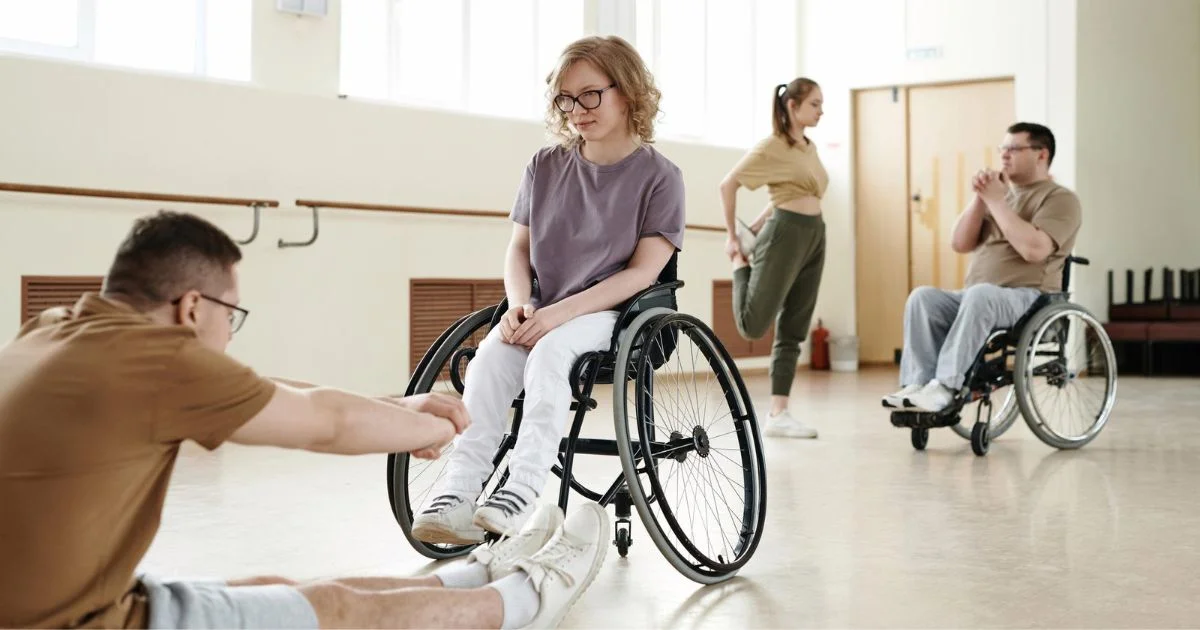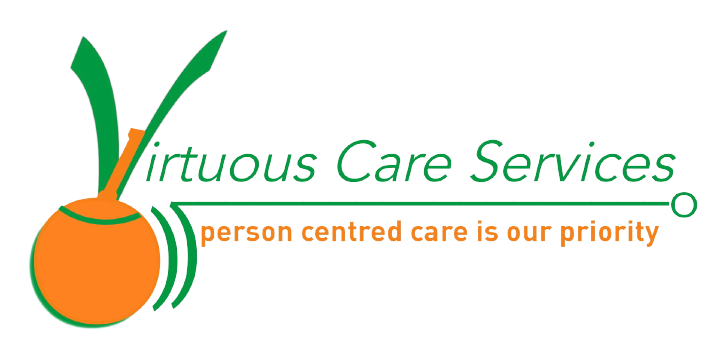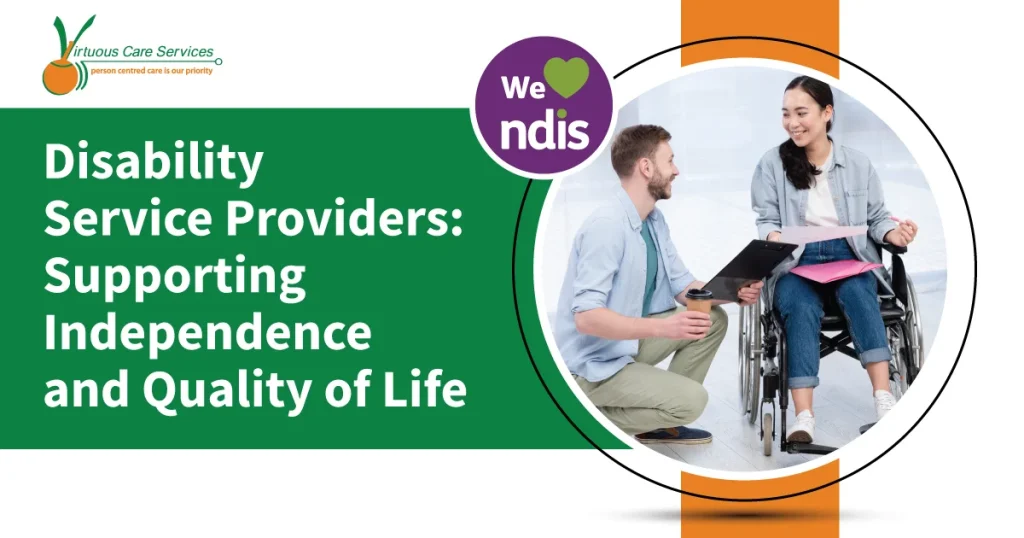When you hear the words disability service provider, you might think of someone who helps with daily tasks like bathing or cooking. That’s part of it, but these providers do much more. They are partners who help people with disabilities live their lives better, learn new skills, connect with others, and feel respected.
In this blog, we’ll talk about what disability service providers do, why they matter, how they help people live more independently, and how to find the right one. We’ll also look at new ideas in this field and explain how support is changing for the better.
What Is a Disability Service Provider?
A disability service provider is a person or organisation that offers help and support to people with disabilities. Their job is to make life easier, safer, and more enjoyable. This help can be anything from assistance with daily tasks to helping someone join community activities or learn new skills.
Providers can be part of the government, private companies, or non-profit groups. They work with people of all ages and different types of disabilities.
What Do Disability Service Providers Actually Do?
Disability support is about helping people live their lives the way they want. This can mean:
- Helping with personal care like dressing, eating, or bathing.
- Assisting with household tasks such as cooking, cleaning, or shopping.
- Providing transport or support to get around the community.
- Offering training to learn new skills like cooking, using technology, or managing money.
- Giving therapies that improve health, such as physical therapy or counselling.
- Supporting people to join social groups, hobbies, or volunteer work.
The goal is to help people become as independent as possible, while still giving the right support where it’s needed.
Why Trust and Respect Are So Important
The heart of disability support is trust. When someone lets a provider into their life, their home, and their personal routines, they need to feel safe and respected.
Good providers don’t just do things for people; they work with them. They encourage people to make their own choices and learn skills so they can do things themselves. This helps build confidence and dignity.
For example, instead of just making meals for someone, a provider might teach cooking skills so the person can prepare their own food safely. This is about more than just help — it’s about empowerment.
New Ways Disability Support Is Growing
Disability support is changing. Providers are finding new ways to help people not just get by, but live full lives.
Being Part of the Community
Instead of only giving transport to appointments, some providers organise outings based on what people enjoy. This could be art classes, gardening, sports, or volunteering. These activities help people make friends and feel like they belong.
Using Technology
Technology is a big help in disability support. Devices like voice-controlled assistants, smart home gadgets, and special apps help people do tasks on their own that they might have needed help with before.
Providers who teach how to use these tools give people more freedom and independence.
Peer Support
Some organisations set up peer mentoring, where people with disabilities support each other. This creates friendship, understanding, and a chance to learn from someone who has similar experiences.
Why Culture Matters in Disability Support
People experience disability in different ways based on their culture, language, and traditions. A provider who understands and respects these differences can give much better support.
For example, what a person eats, their family’s role in their care, or social customs might affect how support is given. When providers learn about these things, they build trust and provide care that really fits the person.

Why Are Disability Services So Important?
Disability services help people live more independently and safely. Without support, many would depend heavily on family members or carers, which can be hard on everyone.
These services also help people join social activities and meet others, which improves mental health and happiness.
Good disability support keeps people healthy by helping with personal care and therapies that prevent problems like infections or injuries.
For families and carers, having professional help means peace of mind knowing their loved ones are safe and cared for.
How Disability Support Usually Works
Disability providers focus on the person’s goals and needs. Support is tailored, not one-size-fits-all.
- First, there’s an assessment to understand what a person can do and where they need help.
- Then, a support plan is made. This plan says what kind of help the person needs and how often.
- Support workers or therapists then work with the person, at home or in the community, following the plan.
- Providers regularly check how things are going and adjust the plan if needed, helping people reach their goals and improve.
How Is Disability Support Paid For?
Paying for disability services can be worrying, but many countries have programs that help cover the costs.
For example, in Australia, the National Disability Insurance Scheme (NDIS) helps eligible people get funding for support services. Other countries have similar programs.
Providers often help people apply for funding and manage their support plans, making it easier to get the help they need without too much hassle.
How to Find the Right Disability Service Provider
Finding the right provider can be easy if you follow these steps:
- Think about the person’s needs and the support they want.
- Look for providers near you and check their reputation.
- Ask friends, family, or doctors for recommendations.
- Visit providers to meet staff and see how they work.
- Choose a provider who listens well and respects wishes.
- Make sure they are flexible as needs may change.
- Understand the costs and any extra fees.
- Check if the provider has proper licenses and follows rules for safe care.
One trusted name in this field is Virtuous Care Services. We provide compassionate, personalised support to help people with disabilities live independently and with dignity. Whether it’s personal care, community activities, or skill development, Virtuous Care Services works closely with each individual to offer the right support that fits their unique needs.
Challenges for Providers and Clients
Disability services face challenges too. Sometimes there aren’t enough trained workers, which can affect how consistent the care is.
Providers need ongoing training to keep up with best practices, which requires time and money.
Funding can limit what services are offered, making it hard to meet all needs perfectly.
People living in rural or remote areas might have less access to services.
Despite these challenges, many providers work hard to give caring and reliable support.
What’s Next for Disability Support?
The future looks hopeful. Technology will keep growing, with new tools like remote health monitoring, online therapy, and apps that help with daily life.
There is more focus on helping people find jobs and be active in their communities.
More personal choice means people get to decide how their support works.
Training for support workers will keep improving, raising care quality.
These changes aim to create a world where people with disabilities have the same chances and respect as everyone else.
How to Start Getting Disability Support
Getting disability support can feel overwhelming at first, but these simple steps will help you get started smoothly:
- Look for local disability services if you or someone you care for needs help.
- Talk to community groups or government agencies for advice.
- Gather important information like medical history, needs, and goals.
- Contact different providers and ask questions.
- Try different options if needed — finding the right support takes time.
- Remember, support is a journey that changes as life changes.
Conclusion
Disability service providers do much more than assist with daily tasks. They help people live fuller, happier, and more independent lives by providing personalised support and encouraging growth.
Choosing the right provider matters and takes some work, but it brings big benefits.
With new technology, better training, and a focus on independence, disability support is becoming stronger and more respectful every day.
If you need help, reach out. There are people and services ready to support you or your loved one on the path to a better life.
Virtuous Care Services is here to walk that path with you, offering trustworthy, caring support tailored just for you.

